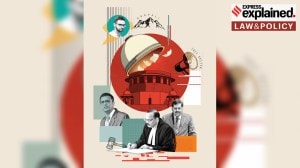Class war in the classroom
Why should one girl's inability to secure a place at Oxford University spark off national controversy? The answer is that the story of Lau...

Why should one girl8217;s inability to secure a place at Oxford University spark off national controversy? The answer is that the story of Laura Spence has allowed Labour politicians to press hard on one of the most sensitive spots in British life class. Miss Spence, a student at an ordinary state comprehensive in the north-east of England, applied to study medicine at Magdalen College, Oxford. She failed to get a place, but was accepted instead by Harvard, one of America8217;s elite universities. To Gordon Brown, the chancellor, this state of affairs was an 8220;absolute scandal8221; a sign that Oxford and Cambridge still favour privately-educated pupils rather than more-deserving students from poorer backgrounds.
The grip that Oxford and Cambridge still exercise on the British imagination is in many ways regrettable. Miss Spence was offered places at several other excellent universities, including Edinburg, Mr Brown8217;s own alma mater. By treating her failure to get into Oxford as some sort of personal and national tragedy, Mr Brown may have bolstered the very elitism he is seeking to attack.
But it remains true that, whatever the strengths of other universities, many of the most cherished positions in British society are occupied by Oxbridge graduates. Eight of the last ten prime ministers went to Oxford. Three out of our senior judges went to Oxford or Cambridge. Two out of three of the most senior civil servants are Oxbridge graduates. The top ranks of the media are heavy with the products of Oxford and Cambridge8230;
Unfortunately, for Mr Brown, the case of Laura Spence could not bear all the weight he had laid upon it. Oxford University was swift to debunk his claims. Medicine is a very hard course to get in for, and Magdalen is a sought-after college. The successful applicants had qualifications just as good as Miss Spence8217;s. Indeed most of the students at Oxbridge are no longer the gilded, privately educated white men of Mr Brown8217;s imagination. A majority of the students are now from the state sector, just like Miss Spence8230;.
8212; Excerpted from The Economist8217;, June 3
- 01
- 02
- 03
- 04
- 05































